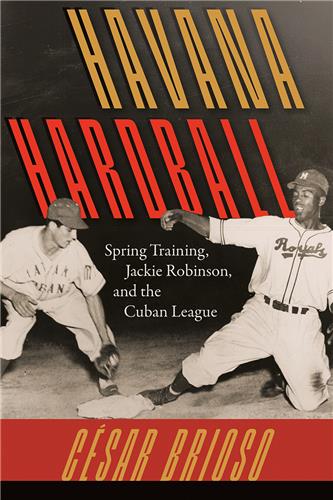Radio and the Struggle for Civil Rights in the South
Brian Ward
Foreword by John David Smith, Series EditorPaper: $26.95
"Brian Ward has turned up the volume on an important but little known aspect of the civil rights movement--the communications and mobilizing power of black radio."--Julian Bond
"An incredibly significant study in furthering the history of the civil rights movement."--The Journal of American History
"Elegantly written, Ward's book profiles the leading stations and DJs who deserve as much attention and admiration as more recognized leaders of the black struggle for freedom. . . . Essential."--Choice
"Painstakingly traces the connections between the entertainment industry and the struggle for civil rights in the post-World War II era. . . . It is a perspective that we need to see, not only because it captures the freedom struggle's complexity--something Ward’s slice of movement history does very effectively--but also because it forces us to confront the fact that, all these years after the movement's greatest triumphs, the long, hard march toward racial justice is still far from complete."--Reviews in American History
This compelling book offers important new insights into the connections among radio, race relations, and the civil rights and black power movements in the South from the 1920s to the mid-1970s. For the mass of African Americans--and many whites--living in the region during this period, radio was the foremost source of news and information. Consequently, it is impossible to fully understand the origins and development of the African American freedom struggle, changes in racial consciousness, and the transformation of southern racial practices without recognizing how radio simultaneously entertained, informed, educated, and mobilized black and white southerners.
While focusing on civil rights activities in Atlanta, Birmingham, Charlotte, Washington, D.C., and the state of Mississippi, the book draws attention to less well-known sites of struggle such as Columbus, Georgia, and Columbia, South Carolina, where radio also played a vital role. It explains why key civil rights leaders like Martin Luther King and organizations such as the NAACP, SCLC, and SNCC put a premium on access to the radio, often finding it far more effective than the print media or television in advancing their cause. The book also documents how civil rights advocates used radio to try to influence white opinions on racial matters in the South and beyond, and how the broadcasting industry itself became the site of a protracted battle for black economic opportunity and access to a lucrative black consumer market. In addition, Ward rescues from historical obscurity a roster of colorful deejays, announcers, station managers, executives, and even the odd federal bureaucrat, who made significant contributions to the freedom struggle through radio.
Winner of the AEJMC award for the best journalism and mass communication history book of 2004 and a 2004 Choice Outstanding Academic Title Award, this book restores radio to its rightful place in the history of black protest, race relations, and southern culture during the middle fifty years of the 20th century.
Brian Ward is professor of American studies at the University of Northumbria. He is author and editor of many books including Just My Soul Responding: Rhythm and Blues, Black Consciousness, and Race Relations; Media, Culture, and the Modern African American Freedom Struggle; and The American South and the Atlantic World.
No Sample Chapter Available
Awards
Choice Outstanding Academic Title - 2004
History Division of the Association of Education in Journalism and Mass Comm - 2005
"This innovative and engaging book restores radio to its rightful place in the history of Black protest, race relations, and southern culture during the middle fifty years of the 20th century."
--The Birmingham Times
"Elegantly written, Ward's book profiles the leading stations and DJs who deserve as much attention and admiration as more recognized leaders of the black struggle for freedom"
"Essential."
--Choice
"Most valuable is Ward's overview of the structure of the southern radio industry and the postwar growth of black-oriented stations."
"Ward's careful account is a helpful reminder that radio reached far more blacks than did either print or television in this era."
--The Alabama Review
"Painstakingly traces the connections between the entertainment industry and the struggle for civil rights in the post-World War II era."
--Reviews in American History
"An incredibly significant study in furthering the history of the civil rights movement."
"One of the many strengths of this study is Ward's sophisticated understanding of the frequent disparity between the political ideologies that dominated various stages of the civil rights movement and the ways in which southern broadcasters crafted their own racial meaning based on immediate economic and political conditions."
--The Journal of American History
"An important contribution to the study of radio broadcasting and the civil rights movement. The scope of the study and the depth of the research are truly impressive."
--American Studies
"A richly detailed analysis of the role radio played in the black freedom struggle during the middle decades of the twentieth century."
--Arkansas Historical Quarterly
"As with his previous work, Ward provides much for scholars to contemplate. He has brought to the forefront a subject that many historians have rarely granted serious attention. By successfully incorporating the unconventional into a familiar story, he has once again helped to legitimize popular culture within his chosen profession. More importantly, Ward has proved that he is one of the leading civil rights historians of his generation."
--The American Historical Review
"Radio and the Struggle for Civil Rights in the South is a seminal study of "cultural miscegeniation via the airwaves"."
--The Journal of American Studies
"Offers important new insights into the connections among radio, race relations, and the civil rights and Black power movements in the South from the 1920s to the mid-1970s."
--The Birmingham Times
…impressive… …the first full-length study of radio and the black freedom movement. …argues that in order to appreciate radio's importance to the freedom movement we need to look beyond overtly political programming-rare in the Jim Crow South-and consider radio's more subtle and subversive political roles.
--The Journal of Southern History












